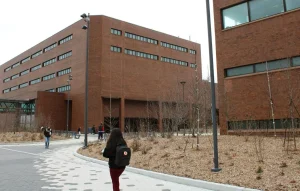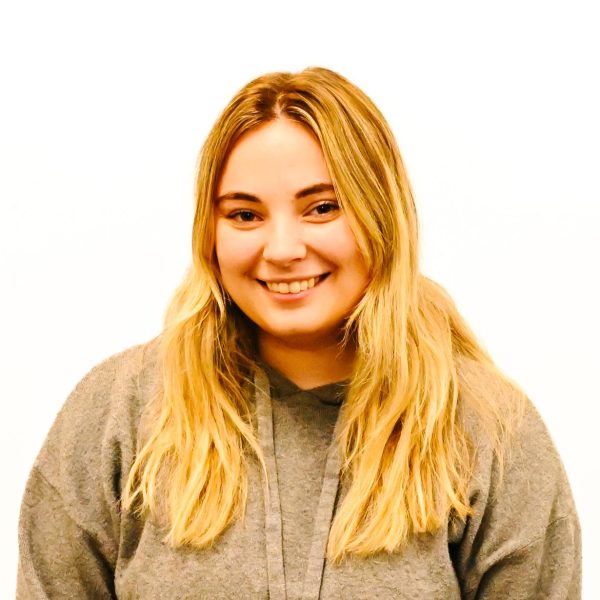Chancellor Marcelo Suárez-Orozco held a public information session Oct. 12 with new updates regarding the ongoing semester and the future of UMass Boston.
Chancellor Suárez-Orozco started his speech by welcoming three people to UMass Boston’s leadership team: Vice Chancellor for Inclusive Excellence Calvin Hill, Ph.D., Special Assistant to the Chancellor for Black Life Michael Johnson, Ph.D., and environmental science professor and the new Dean of the School for the Environment and environmental science professor Carol Thornber, Ph.D.
Suárez-Orozco said that UMass Boston had set a record by securing over $81 million in research funding for 2024 — a 35% growth over the last ten years — meeting all benchmarks required to attain the R1 category of the Carnegie Classification of Institutions of Higher Education.
Suárez-Orozco congratulated and thanked those who were able to make this accomplishment a reality.
“Research funding has reached the highest level ever reported by the University. Congratulations to Provost Berger, and all involved in the leadership in attaining this record-breaking funding,” he said. “And thank you to our faculty and chairs for this extraordinary achievement.”
After talking about the recent UMass Boston and Bunker Hill Community College agreement, an agreement that will help smoothen the process for Bunker Hill students transferring to UMass Boston, and recent meetings discussing improving campus infrastructure and academics, protestors entered and stood along the back of the room with tape on their mouths. They held signs criticizing the new protest policy and tuition increase. Union members and pro-Palestinian supporters also participated, demanding the chancellor listen to their voices.
Suárez-Orozco acknowledged those who may have connections to global ongoing tragedies, specifically mentioning the recent hurricanes in Florida.
“At UMass Boston, our efforts will remain focused on encouraging dialogue and understanding of different viewpoints in the classroom, at special lectures and campus activities, rather than issuing statements on political, social, economic and global matters,” he said.
Suárez-Orozco also emphasized the campus’s stance on free speech. “We will always defend the right of free expression and promote academic freedom. We will remain a community where issues can be debated in a civil, informed and respectful manner.”
Provost Joseph Berger, who spoke after Suárez-Orozco, expressed a desire to improve and streamline billing processes and better coordinate advising. He also mentioned UMass Boston’s Early College Program, led by Provost David Graham, and how they are working with three high schools to allow students to take 30 credits into college with them.
Berger said, “This is a game changer to allow students to have a more affordable path to success here at UMass Boston and beyond.”
Berger talked about the university’s “Grand Scholarly Challenges,” which act as guidelines to follow when considering arraying research, scholarship and academic program investments. These challenges include focuses on climate equity and urban coastal areas, bridge divides in health equity, emphasize education for the future and advance a just society. Bob Chen, a professor at the UMass Boston School for Environment, will announce a request for proposal to allocate $100,000 to advance the challenges.
Berger mentioned that the school is up for re-accreditation from the New England Commission of Higher Education and the administration’s desire to use this as an opportunity to improve the university. “I have no concerns whether we will get reaccredited,” he said. Burger also said the university plans to fully transition from Blackboard to Canvas by spring 2025. The university initially planned the transition for summer 2024.
Vice Chancellor for Enrollment Management John Drew spoke about the university’s enrollment statistics. There was a less than 1% change in enrollment from Fall 2023 to Fall 2024. However, there’s been a 61% increase in student of color enrollment in the last five years.
Vice Chancellor for Student Affairs Karen Ferrer-Muñiz said over 1,300 student-led events and programs have taken place at UMass Boston since Fall 2021.
“That indicates a very strong desire to have face-to-face engagement as we all continue to work back these last two years after the pandemic,” she said.
Ferrer-Muñiz also mentioned “Commitment 2024,” a process to encourage voter registration among students, the success of the Menstrual Equity project, which has installed period product dispensers in bathrooms around campus, and the sunscreen dispensers outside of campus buildings.
Jacqueline Schuman, the vice chancellor for athletics and recreation, spoke about a five-year strategic plan that prioritizes wellness, stakeholder engagement, gender equity, capital investment and advancement in regards to the athletic department. She also highlighted the noteworthy increase in recreational activities on campus and UMass Boston’s new apparel partnership with New Balance.
Hill spoke about the progress made in his three months working in the Office of Inclusive Excellence and Belonging, such as the Restorative Justice Commission, their new website and the development of a diversity and belonging training series.
Hill emphasized the importance of UMass Boston being a welcoming environment: “I would love for this community to feel like home for all that choose to work or attend classes here.”
Vice Chancellor of Finance Kathleen Kirleis then spoke about the university’s new budget, which will have a 2% operating margin, required by the board of trustees, and is on track to keep up with the future plans for the university. The plan includes closing the Dorchester Bay City Project, a plan to build new building complexes at Bayside Lot, by Dec. 31, finishing touches on the quad, and improving campus and building quality.
Kirleis highlighted the new space use policy, which she said includes content-neutral time, space, and manner requirements to ensure community safety. She mentioned a committee of people recommended by the university’s Vice Chancellors revised the policy over the summer, formalizing processes and accounting for students’ First Amendment rights.
This article appeared in print on Page 5 of Vol. LVIII Issue V, published Oct. 21, 2024.






